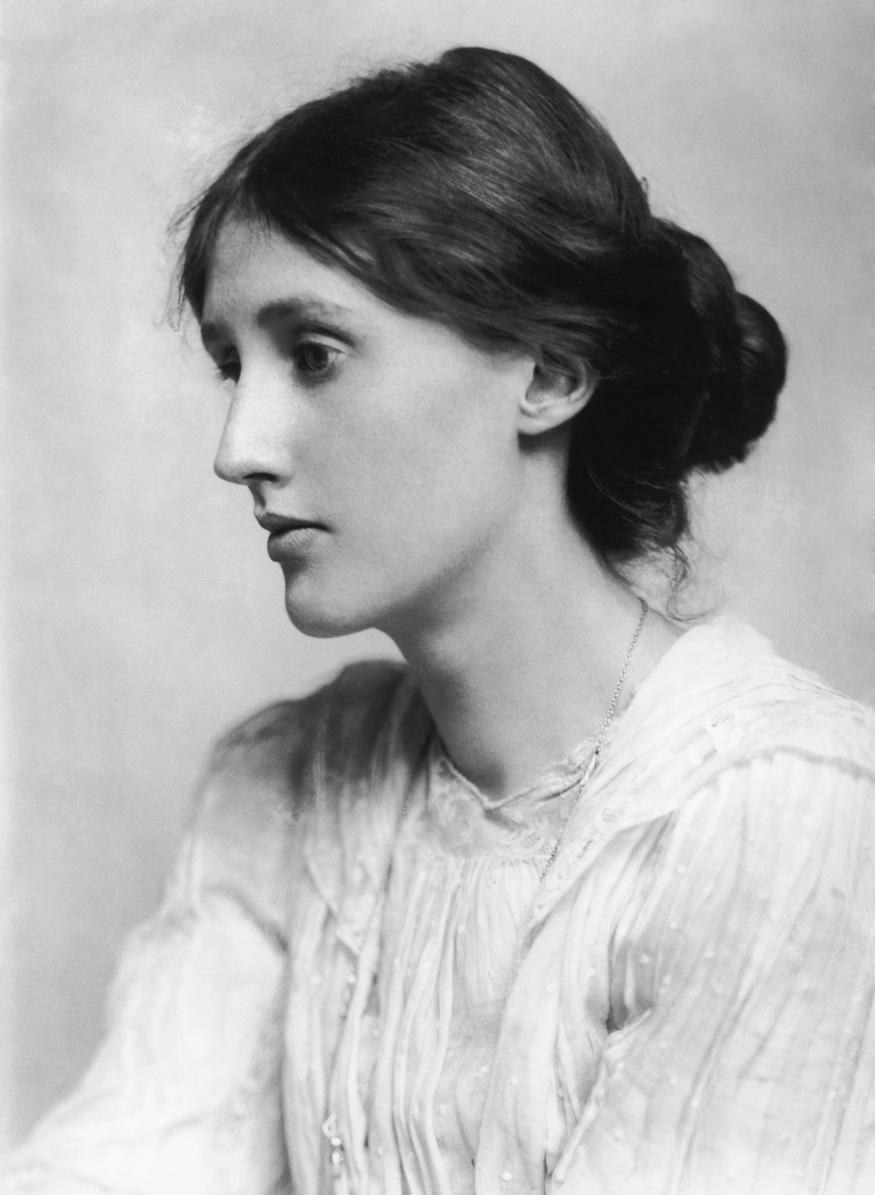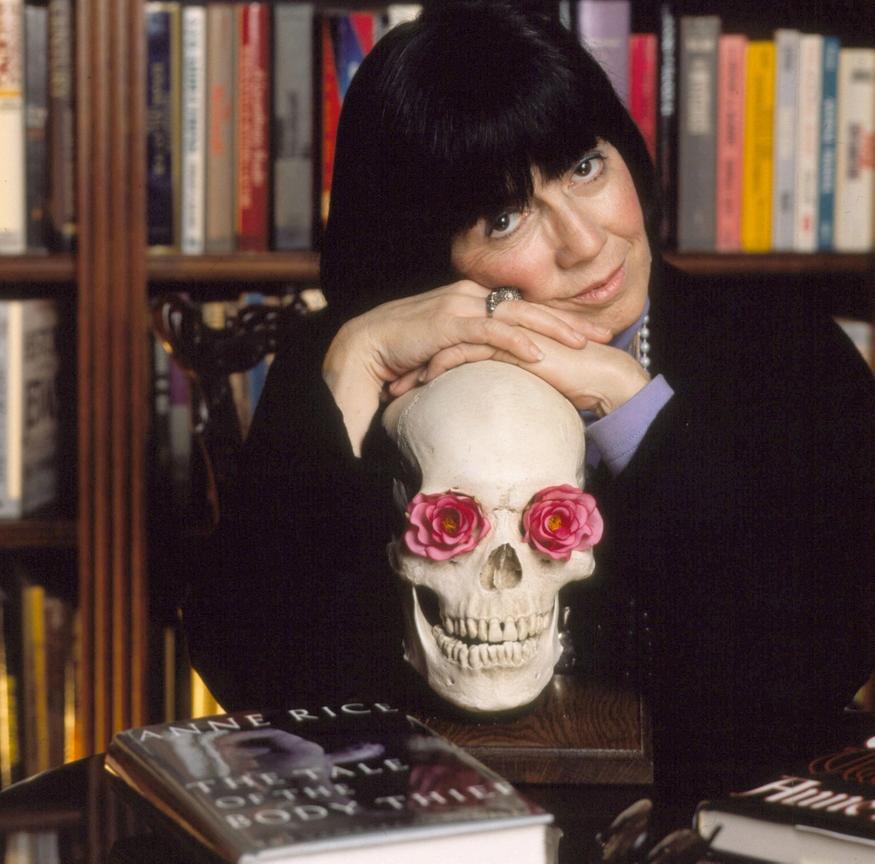Did You Know She Was Depressed?
Published on 8/5/2020Renowned female writers who suffered from depression

While there is still controversy within psychology regarding the relationship between creativity and depression, this is nothing new. Since Greek times we have considered there to be a link between being artistically gifted and exhibiting certain pathological personality traits. They considered inspiration to be a form of divine madness, known as furor poeticus, which was sent by the gods. Even today we like to speak of a muse, not even realising that this relates directly to the Greek Muses who bestowed creativity and inspiration on those deemed worthy.
Tell someone from an older generation that you want to be a famous writer and you’re likely to receive the reaction of “Are you crazy?”. Perhaps they’re querying your suitability for the job, the likelihood of this or potential income. Or maybe they’re doubting whether you’re crazy enough, because maybe being a writer needs a certain high degree of insanity. And if not insanity, at least a mental illness.
The evidence is here in these accomplished, incredible women who have become household names through putting a pen to paper.
1. Sylvia Plath
Let’s get the most obvious one out of the way, Sylvia Plath is so renowned in the field of mental health that they have even coined the Sylvia Plath Effect. This phenomena considers poets to be more susceptible to mental illness than other creative writers. Her struggles with depression are a core aspect of her work, and so it is difficult to disentangle the stories from the individual. Her classic novel, The Bell Jar, is a semi-autobiographical fiction that includes events from her own life, such as her depression, suicide attempt and the electro-convulsive therapy she underwent. Many like to say that she did her best and celebrated poetry at her most depressed, which I find to be a highly problematic statement, as if condoning deep pain if it brings such art. Plath took her own life at the age of 30.
Who could explain it better than Plath herself?
“God, but life is loneliness, despite all the opiates, despite the shrill tinsel gaiety of 'parties' with no purpose, despite the false grinning faces we all wear. And when at last you find someone to whom you feel you can pour out your soul, you stop in shock at the words you utter — they are so rusty, so ugly, so meaningless and feeble from being kept in the small cramped dark inside you so long. Yes, there is joy, fulfillment and companionship — but the loneliness of the soul in its appalling self-consciousness is horrible and overpowering.”
- The Unabridged Journals of Sylvia Plath
2. Emily Dickinson
An American poet that was renowned for her reclusive life. She was never diagnosed with a mental illness, but examination of recollections, her letters and poetry have led experts to deduce that she suffered from severe mental health issues, most likely major depression or bipolar disorder. Her poetry frequently contains themes of death, morbidity and depression. In contrast, she was a keen botanist who also wrote often of flowers and gardens, perhaps using these as a symbol for the internal life.
“Saying nothing sometimes says the most.”
- A letter to her aunt, Emily Dickinson
3. Zelda Fitzgerald
Many recognise the name Fitzgerald for her esteemed husband, F. Scott Fitzgerald, but Zelda was a writer in her own right and should be remembered as such. At the time she was blamed by many, including Ernest Hemingway, as a cause for her husband's declining literary output, despite her extensive diaries providing much of the material for his fiction. She spent much of her time between 1930 and 1948 in hospitals and sanatoriums, diagnosed with Schizophrenia. Nowadays, it is recognised that Zelda was most likely struggling with Bipolar Disorder instead. It was during this period that she began writing for two hours a day as part of her therapy, and managed to write an entire novel within six weeks. Her husband was displeased with her novel, Save Me The Waltz, as he covered similar material in his own book, Tender Is The Night. She passed away at the age of forty, through a fire at the hospital where she was a patient.
"Emptying the ashtrays was very expressive of myself. I just lump everything in a great heap which I have labeled 'the past', and having thus emptied this deep reservoir that was once myself, I am ready to continue."
- Save Me The Waltz, Zelda Fitzgerald
4. J.K. Rowling
Many consider J.K. Rowling to be the success story, the exception to clutch in hope that you’ll have the same. An unemployed mother writes a bestselling novel and becomes a billionaire, richer than even the Queen of England. Behind the scene of perfection is the severe depression she struggled with between the ages of 25 and 28, which she has openly discussed. You may be surprised to find this depression played a part in Harry Potter, her young adult series. She used the horrendous Dementors to capture how depression feels as a sufferer, as they feed off human happiness and provide a cold absence of feeling.
"Dementors are among the foulest creatures that walk this earth. They infest the darkest, filthiest places, they glory in decay and despair, they drain peace, hope, and happiness out of the air around them… Get too near a Dementor and every good feeling, every happy memory will be sucked out of you. If it can, the Dementor will feed on you long enough to reduce you to something like itself… soulless and evil. You will be left with nothing but the worst experiences of your life."
- Harry Potter and the Prisoner of Azkaban, J.K. Rowling
“Depression is the most unpleasant thing I have ever experienced...It is that absence of being able to envisage that you will ever be cheerful again. The absence of hope. That very deadened feeling, which is so very different from feeling sad. Sad hurts but it's a healthy feeling. It is a necessary thing to feel. Depression is very different.”
- A J.K. Rowling interview with the Times (UK)
5. Charlotte Perkins Gilman
Charlotte Perkins Gilman wrote many short stories, but is most renowned for The Yellow Wallpaper, which was revolutionary for its release in 1892. It tells the tale of a wife’s descent into madness, and pushes depression and mental health onto a large stage, as they had barely been publicized before this time. It is semi-autobiographical, essentially a response to the doctor who had tried to cure her depression through a “rest cure”. It’s important for us to recognise the growth in the treatment of depression and mental illness, particularly in “hysterical females” if only to see how much further we can go. She committed suicide in 1935 by overdosing on chloroform, something that many link to her advocacy of euthanasia for the terminally ill.
“I never saw so much expression in an inanimate thing before, and we all know how much expression they have! I used to lie awake as a child and get more entertainment and terror out of blank walls and plain furniture than most children could find in a toy-store. “
- The Yellow Wallpaper, Charlotte Perkins Gilman
6. Virginia Woolf
Another big name of the depressed writers club, alongside Sylvia Plath, Virginia Woolf suffered her first bout of depression at the age of 15. She later spoke of the sexual abuse she suffered at the hands of family members. She continued to battle with mania and depression throughout her life, and was even hospitalized in 1904 to treat it. Unlike other artists, Woolf’s creativity was compromised by her illness, through intermittent mood swings, insomnia, migraines and both auditory and visual hallucinations. Psychiatrists today recognise her symptoms to be Bipolar Disorder, but at the time it was simply ‘madness’.
Many wonder if these visual hallucinations may have served as inspiration for her, working almost as visions. The effect of her mental illness is certainly present in her work, such as her criticism of medical establishments in Mrs Dalloway, which is considered to reflect her own ineffectual treatments during the 1920s. Virginia Woolf committed suicide in 1941 at the age of 59.
“I enjoy almost everything. Yet I have some restless searcher in me. Why is there not a discovery in life? Something one can lay hands on and say “This is it”? My depression is a harassed feeling. I’m looking: but that’s not it — that’s not it. What is it? And shall I die before I find it?”
- A Writer’s Diary, Virginia Woolf

(Photo Credits: Wikipedia)
7. Susanna Kaysen
Susanna Kaysen was eighteen years old when she was admitted to a psychiatric hospital following one session with a psychiatrist. She spent two years at McLean Hospital, which happens to be the same institution that Sylvia Plath was at. Kaysen discusses her experiences through her memoir Girl, Interrupted. In particular her own diagnosis and the treatment of other female patients in America of the 60s are challenged, the grey and subjective borders between what was considered ‘sane’ and ‘insane’, and still is today. I read her memoir before I was also diagnosed with Borderline Personality Disorder, and since researching this disorder more, can confirm that her diagnosis is questionable and certainly rushed. BPD is usually diagnosed late, and takes a great deal of time to be accurately labelled.
“I think many people kill themselves simply to stop the debate about whether they will or they won't.”
- Girl Interrupted, Susanna Kaysen
8. Anne Rice
Rice is one of those cases that makes us wonder if mental illness truly does precede a successful writer, for she only found success as a writer once tragedy struck. Her five year old daughter died of Leukemia, and this led Rice to suffer from severe depression. Her relief was in writing, and her first novel Interview With the Vampire was turned into a successful movie and a series of novels. She wrote dozens of popular books and has garnered a cult following. The example of Rice doesn’t just show creativity through darkness, but how creativity is the relief from the darkness, not the fuel for it.
“You do have a story inside you; it lies articulate and waiting to be written — behind your silence and your suffering.”
- Anne Rice

(Photo Credit: Cosmopolitan, Getty Images)
9. Anne Sexton
Another Anne! “Annie, are you okay?”.
An American poet, Anne Sexton is known for her highly personal and confessional verse focused on her long battle against depression, suicidal tendencies and mania. She won a Pulitzer Prize in 1967 for her book Live or Die. She lived with a fixation on death, and claimed that her latest poetry could not be released before her death, showing the intent was already present. Perhaps it was her trepidation about the quality of her own work and her abilities, or perhaps it was a desire to be remembered, whispered into history. She committed suicide in 1974. Her poetry was a form of self healing, recommended by her doctor, with no idea that this poetry would pioneer the discussion of mental health and illness.
“But suicides have a special language.
Like carpenters they want to know which tools.
They never ask why build.”
- Wanting To Die, Anne Sexton
10. Stacy Pershall
In Loud in the House of Myself: Memoir of a Strange Girl, Stacy Pershall speaks of her childhood and eventual Bipolar Disorder and Borderline Personality Disorder. She discusses an intense struggle with the mental health care system, bringing light to this issue ridden system. But at the heart of her work is a struggle for acceptance, having been raised in a church that preached mental illness as a symptom of “not loving God enough”. It’s a familiar tale of blaming yourself for your mental illness, and Stacy works to fight this rhetoric through her writing and activism.
“Nobody would commit suicide if the pain of being inside herself, the agony of the sleepless, tortured hours spent watching the world get smaller and uglier, were bearable or could be relieved by other people telling her how they wanted her to feel. A depressed person is selfish because her self, the very core of who she is, will not leave her alone, and she can no more stop thinking about this self and how to escape it than a prisoner held captive by a sadistic serial killer can forget about the person who comes in to torture her everyday. “
- Loud in the House of Myself: Memoir of a Strange Girl, Stacy Pershall
11. Kate Chopin
Some consider Kate Chopin’s The Awakening to be one of the most classic stories about mental health written by a female author. It was first published in 1899, and ignited controversy regarding its depiction of feminist ideals and unorthodox views on motherhood. Her work is now seen as a pioneering step of early feminism. At the time her characters were considered immoral, but this has actually paved the way for imperfect female protagonists - and thank goodness for that! She wrote short stories and novels based on her home of Louisiana, and it is believed that her own depression following her husband's passing inspired the depression and mood disorder referenced in the novel.
“She was moved by a kind of commiseration for Madame Ratignolle, - a pity for that colorless existence which never uplifted its possessor beyond the region of blind contentment, in which no moment of anguish ever visited her soul, in which she would never have the taste of life's delirium.”
- The Awakening, Kate Chopin
12. Caroline Kettlewell
In her autobiography, Skin Game, Caroline Kettlewell discusses the controversial subject of self harm. The memoir details not only her own experiences of self harm and mutilation, but also how over two million Americans cope with this disorder. Self-harm is predominantly done by females, and is a rising phenomenon. This memoir approaches this uncomfortable topic in an honest and raw manner, making it a vital read for women battling similar issues as well as educating those who don’t.
“The fear of an unknown never resolves, because the unknown expands infinitely outward, leaving you to cling pitifully to any small shelter of the known: a cracker has twelve calories; the skin, when cut, bleeds.”
― Skin Game, Caroline Kettlewell

There are hundreds of female writers with depression that could be listed, and those that could be too easily overlooked. There is the one writing this article, and perhaps the one reading it now. What can we learn from this list? A mistake would be to attribute their success to their mental illness, to allow their depression the pride of their success.
We learn that mental illness is a theme that inspires creativity, something that readers look for in works. We learn that you can overcome your mental illness, you can write novels and poems, you can achieve whatever it is you want, even great success in the cut throat industry of writing. We learn that by speaking up about their struggle, they inspire us to do the same, they normalise their pain. There was a time when admitting you had a mental illness was a career cincher for artists or famous people. It remains an unappealing trait to employers, something we’re warned over when discussing it as openly as on a blog. But by each taking a moment to admit to our struggle, to bring it into the conversation, we take that fallacy down brick by brick.
“I told her I wasn’t good at anything. She told me survival is a talent.”
- Girl, Interrupted , Susanna Kaysen
Featured posts

Fleur
Welcome to Symptoms of Living! A place where I like to relieve myself of the barrage of thoughts and ideas filling my mind. Here I'll take a look at various topics, from books to BPD, series to self-harm, there's nothing that we can't, and shouldn't, talk about.
Having struggled with mental illness since the age of 15, one of the hardest parts was how alone I felt in it. While mental illness is beginning to be discussed more openly, and featured in the media, I still think there is room for improvement. So whether it is mental illness or merely mental health, a bad day or a bad year, let's make this a place to approach it and strip it back. Everyone has their own symptoms of living, and you certainly won't be the only one with it.
Would you like to receive my top monthly articles right to your inbox?
For any comments/questions/enquiries, please get in touch at:
info@byfleurine.com
I'd love to hear from you!